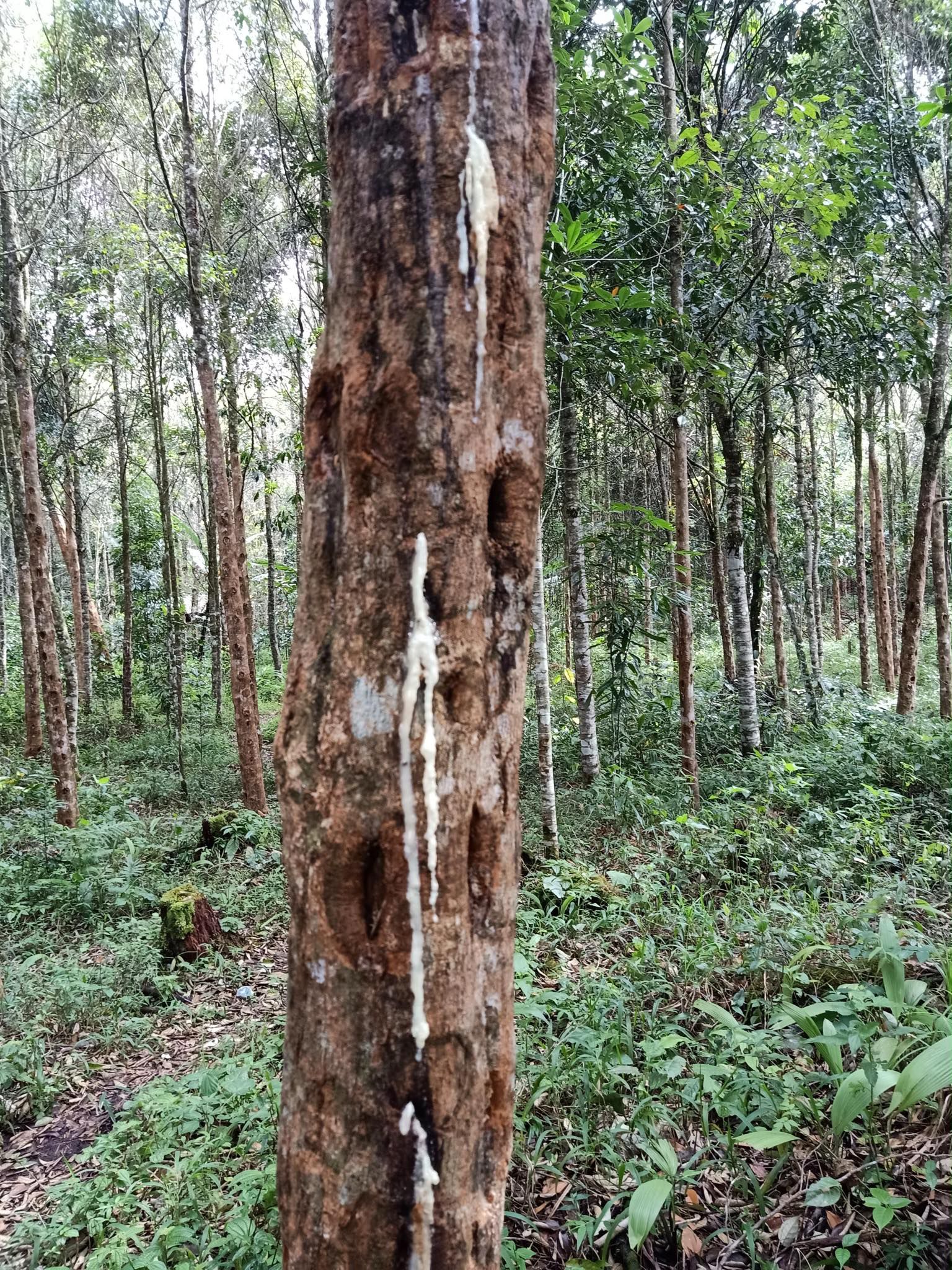
In the misty highlands of North Sumatra, generations of Batak farmers have perfected a sacred craft the art of collecting the tears of the Styrax trees. This traditional tapping method, known as Marhaminjon, reflects patience, respect for nature, and the deep wisdom inherited through centuries. Every incision, every waiting season, and every crystal formed tells a story of balance between human hands and the living forest.
The area around each Styrax tree is carefully cleared to ensure healthy airflow and light penetration. This step marks the beginning of the tapping ritual, symbolizing purification before the harvest begins.
Using a sharp knife, farmers scrape off the aged outer bark, exposing the fresh layer beneath. This allows the resin to flow naturally and purely, free from impurities.
A traditional curved blade called Guris is used to gently cut the bark in a precise motion. This incision allows the trees fragrant resin to emerge slowly natures own way of releasing its essence.
As the resin drips, it is caught in small bamboo or wooden containers known as Agat. Over time, the resin thickens and hardens, transforming into semi-transparent drops that glisten under sunlight.
After about four to five months, the resin fully crystallizes. Farmers return to the forest to carefully harvest these precious pieces solidified tears that carry both fragrance and heritage. Each crystal embodies months of natural transformation guided by human care and cultural reverence.
Unlike industrial extraction, Toba Benzoin tapping respects the rhythm of nature. No trees are cut down, and tapping cycles allow the forest to regenerate. This harmonious practice sustains both the environment and the communities that depend on it, ensuring that every drop of resin is not just a product but a continuation of ancestral balance and devotion.